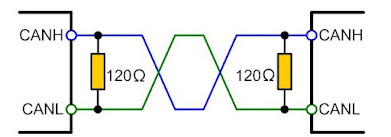In the world of industrial automation and communication systems, ensuring signal integrity is critical. One essential component that plays a big role in this is the termination resistor. Whether you're working with RS-485, CAN bus, or Profibus networks, using proper termination can mean the difference between reliable data transmission and communication errors.
A termination resistor is a resistor placed at the end of a transmission line or communication bus. Its primary function is to match the impedance of the line, which helps to eliminate signal reflections. Without proper termination, these reflections can cause noise, distortion, and even communication failures in high-speed data lines.
Why Are Termination Resistors Important?
In industrial systems, especially those using differential signaling (such as RS-485), the cable acts like a transmission line. If the cable is not terminated correctly, signals bounce back and interfere with new signals—this results in data errors.
Termination resistors:
-
Prevent signal reflection
-
Maintain signal integrity
-
Improve reliability of communication
-
Are required for many fieldbus protocols
Where to Use Termination Resistors?
You’ll typically find termination resistors:
-
At both ends of an RS-485 bus
-
In CAN bus systems
-
On Profibus DP networks
-
Inside PLC modules and remote I/O systems
They are often integrated in connectors or enabled via jumpers or DIP switches.
Choosing the Right Termination Resistor
The most common value for a termination resistor is 120 ohms, but it depends on the characteristic impedance of your cable. Always refer to the device or protocol's manual for exact values and termination instructions.
Practical Tips for Engineers
-
Always terminate both ends of your communication line.
-
Don’t over-terminate; too many resistors can overload drivers.
-
Use proper cabling with matched impedance.
-
Check if your devices have built-in termination options.
Conclusion
A termination resistor might seem like a small component, but its impact on the stability of industrial communication systems is huge. For engineers working in automation, control systems, or fieldbus network design, understanding and applying proper termination is a must-have skill.







0 Comments